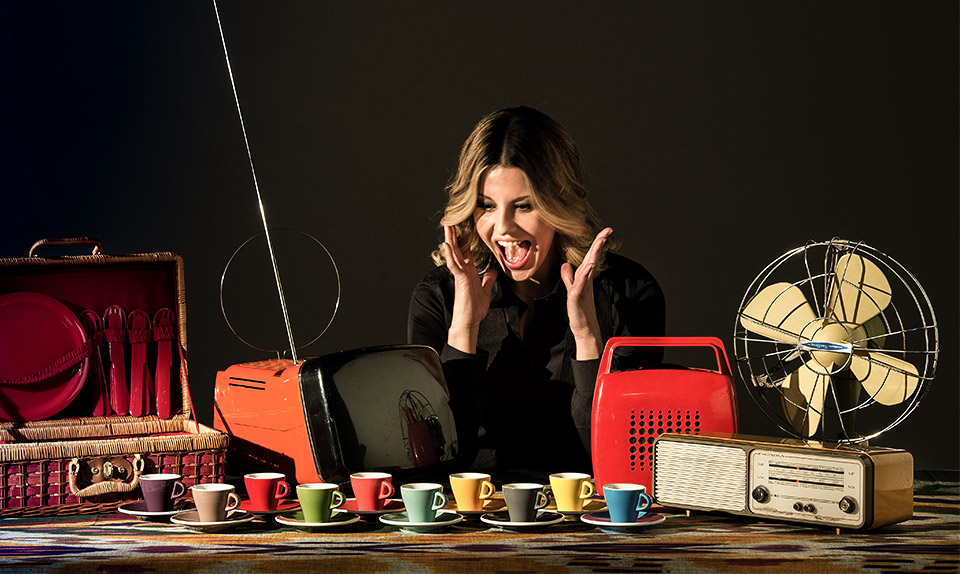
Porcelain is born and spread throughout the world for centuries thanks to the uniqueness of its white color and its innate characteristics of brillance and purity that for many years have remained a distinctive sign for almost all the cups intended for professional use. The limited availability of colored enamels suitable for porcelain and the high cost of producing them has for a long time been an insurmountable barrier to the use of color in the sector.
Nevertheless, the ever-increasing attention to the cup developed in recent years has led us to push hard on the search for new production solutions making color at the reach of everyone. Starting from the early 2000s, the professional cup has become a key marketing tool, becoming the main vehicle for brand and business image promotion in the coffee industry, making color an indispensable tool to better differtiate your own image.
With great satisfaction after years of research, we have succeeded in the development of a special type of porcelain, cooked at a temperature of 1.350 °C, which thanks to its particular characteristics allows to combine innate resistance to thermal shocks, bumps and perfect impermeability of porcelain, with a high degree of flexibility and availability in terms of colors and finishes.
The new cups collection consist of 12 colors, some of them available also in an refined matte finishing, with the possibility of further development almost infinite in presence of important quantities.
To make our offer even more flexible and accessible, we have developed an offer unique of its kind on the market.10 colors on the Gardenia line are constantly available for immediate delivery and managed individually, enabling even for small quantities a wide choice of colors and a remarkable combination of possibilities to meet the needs and tastes of each customer.
Same as for all of our products, our colored enamel cups fully comply with the limits of lead and cadmium cession for porcelain products destined for food contact and are periodically subjected to testing at our home labs and some of the most accredited European laboratories (Centro Cermico di Bologna and Istituto Italiano per la Sicurezza del Giocattolo).
